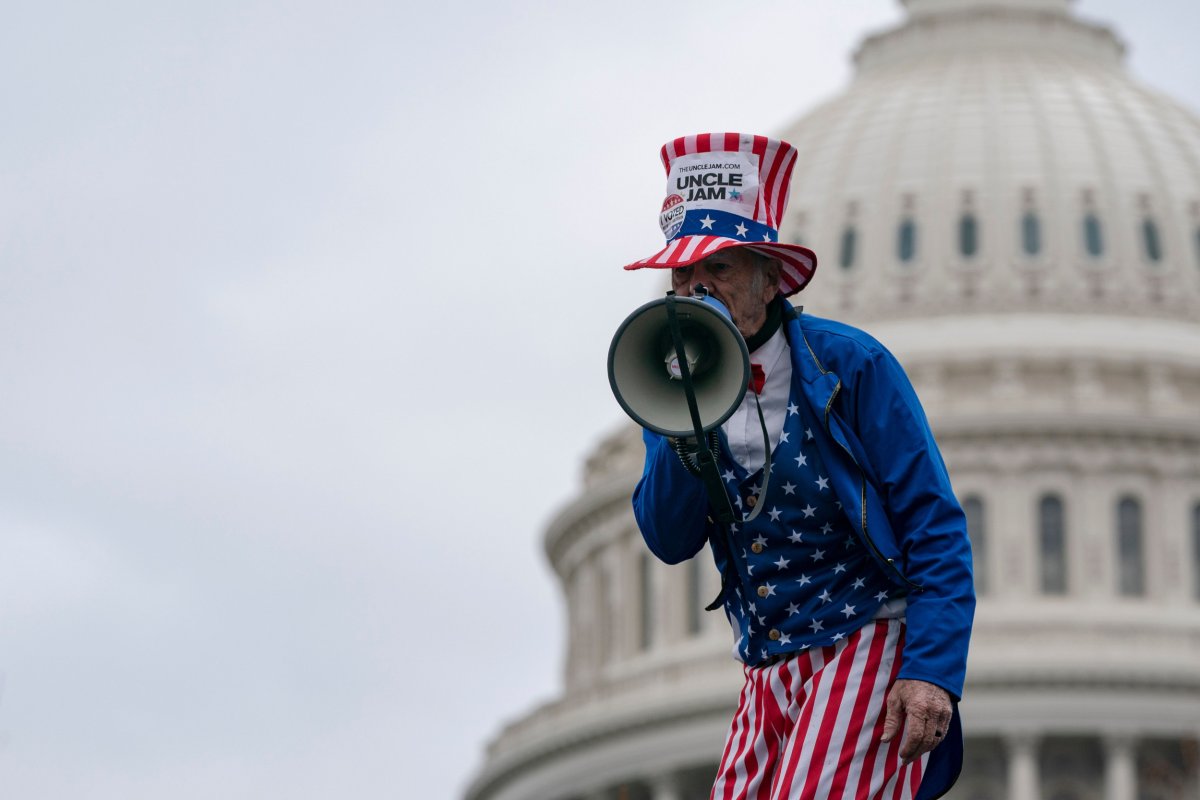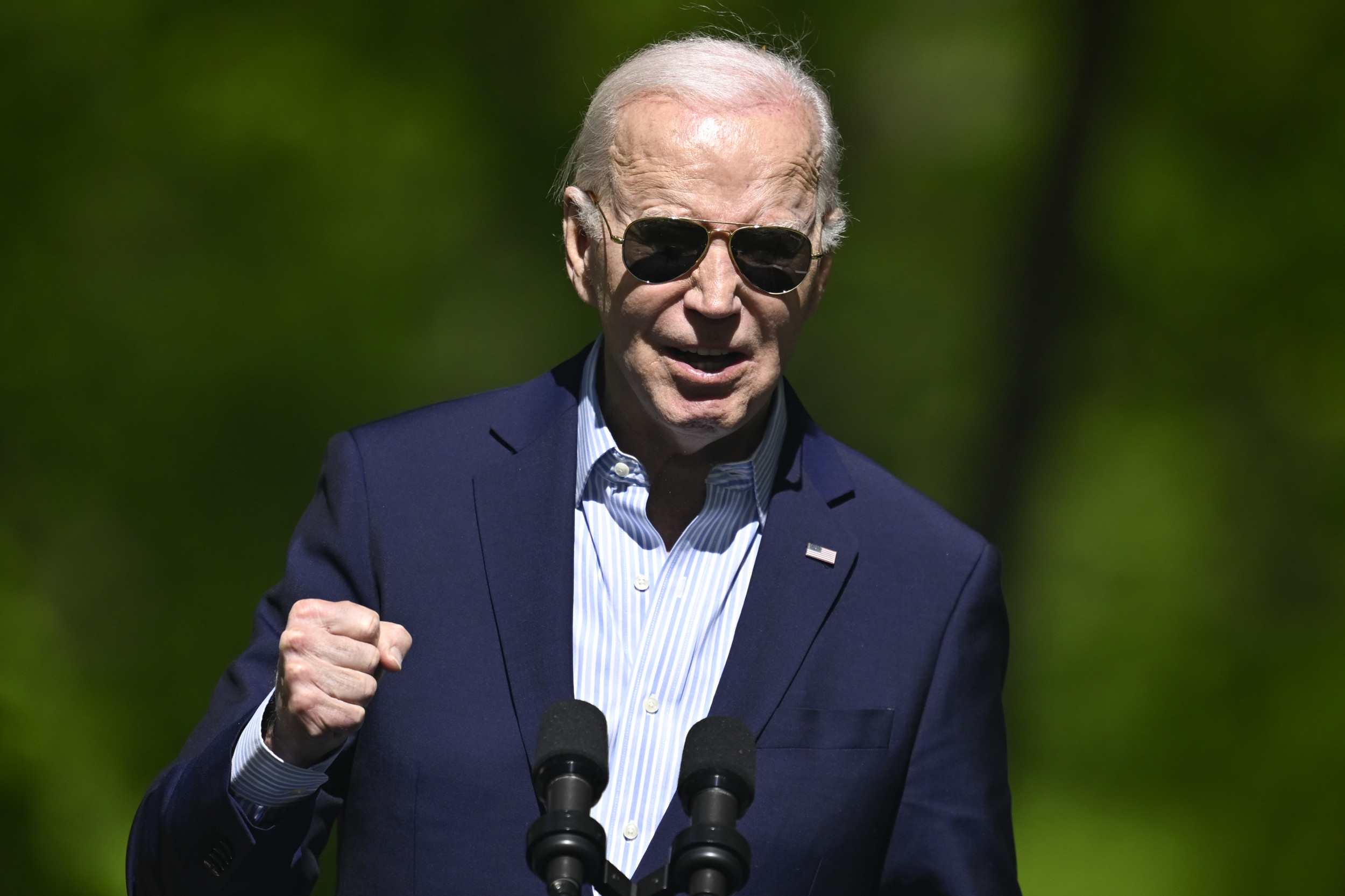The federal government may be looking at charging U.S. Capitol rioters with sedition, a crime that few have ever faced but doesn't have the same burden to prove as treason.
Hundreds of people have been arrested for their alleged involvement in the Capitol riot on January 6, when a mob of people stormed the building as Congress met to certify President Joe Biden's Electoral College victory. While some face the possibility of a fine if found guilty, if prosecutors were to pursue sedition charges, defendants could be looking at 20 years in prison.
The United States Code defines seditious conspiracy as two or more people conspiring to "overthrow, put down or to destroy by force the government of the United States"; "oppose by force" the authority of the government; or prevent or delay the execution of any law of the United States.
On Sunday, Michael Sherwin, acting United States attorney for the District of Columbia, told Scott Pelley on CBS News' 60 Minutes that he believed the evidence was trending towards sedition charges and "probably meets those elements."
"I believe the facts do support those charges. And I think that, as we go forward, more facts will support that," Sherwin said.
Sherwin disagreed with Pelley that charging someone with sedition is a "low bar," based on how the statute is written. However, it's a much easier charge to pursue than treason, the only crime to be defined in the Constitution.

The Founding Fathers narrowly defined treason so it would not be used against political opponents, as the British crown had done, according to Frank Bowman, a curators' professor at the University of Missouri School of Law. In an effort to keep those kinds of prosecutions from becoming a practice of American politics, the founders defined treason as "levying war" against the government or giving its enemies "aid and comfort."
In both a seditious conspiracy case and treason case, the prosecution must prove beyond a reasonable doubt that a person is guilty. But, unlike in a seditious conspiracy case, to convict someone of treason there must be testimony from two witnesses of the same "overt act" or a confession in open court.
"Treason is the hardest crime to prove in a criminal trial, because the Constitution sets forth unique rules of evidence," Michael Morley, an associate professor at the University of Florida College of Law, told Newsweek. "Other crimes can be proven through circumstantial evidence, without multiple corroborating witnesses, and based on out-of-court confessions."
There have been only about 30 treason trials in the United States since 1789, according to the Constitution Center. The last time the government brought charges of treason against someone was in 2006, when Adam Gadahn was indicted for making propaganda for Al-Qaeda. He was killed in an airstrike in Pakistan before he faced a trial.
Tomoya Kawakita was the last American to be convicted of treason, and in 1948 he was sentenced to death for tormenting American prisoners of war. However, President Dwight Eisenhower commuted his sentence to life in prison in 1953, and 10 years later, President John Kennedy released him on the condition that he could never again enter the United States.
The last time a person was charged with seditious conspiracy was in 2010. But a judge dismissed the charges against the nine members of the Hutaree Christian Patriot militia group on the basis that the prosecution failed to adequately prove its case.
"The government's case is built largely of circumstantial evidence," U.S. District Judge Victoria Roberts wrote in her 2012 ruling. "While this evidence could certainly lead a rational fact-finder to conclude that 'something fishy' was going on, it does not prove beyond a reasonable doubt that defendants reached a concrete agreement to forcibly oppose the United States government."
The majority of the 400 Capitol riot cases prosecutors opened involve trespassing, but about 10 percent involve conspiracy charges, Sherwin said on 60 Minutes. They largely involve members of the Proud Boys, Oath Keepers and Three Percenters, and Sherwin said there's evidence they "had a plan," although they don't know the full extent of it.
The most significant charge brought so far is obstruction of Congress, according to Sherwin, and could bring 20 years in prison. He said defendants breached the Capitol with the "goal to obstruct official proceedings."
With hundreds of cases opened, Sherwin said, the federal government wanted to "move quickly" to make sure there was "trust in the rule of law." He promised a fair prosecution based solely on an individual's conduct, because applying an equal application of the law is the only way to rebuild America as an example of "rule of law and order and democracy."
Uncommon Knowledge
Newsweek is committed to challenging conventional wisdom and finding connections in the search for common ground.
Newsweek is committed to challenging conventional wisdom and finding connections in the search for common ground.
About the writer
Jenni Fink is a senior editor at Newsweek, based in New York. She leads the National News team, reporting on ... Read more
To read how Newsweek uses AI as a newsroom tool, Click here.








